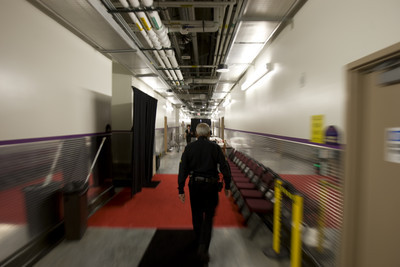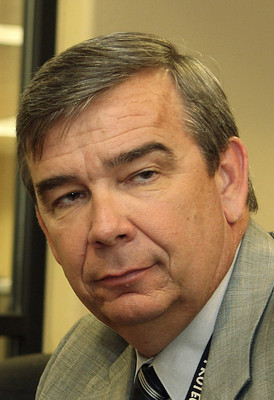Sheriff sees hotels, casinos helping
WASHINGTON -- Southern Nevada authorities are seeking to make greater use of thousands of front line-resort workers such as valets and housekeepers to tip off police to shady behavior and possible criminal and terrorist activity, Congress was told on Tuesday.
Clark County Sheriff Doug Gillespie said law enforcers are stepping up their outreach to Strip and downtown hotels, and also to private guards who live and work in Las Vegas.
"In our community there are over 6,700 private security professionals, and thousands more valet attendants, housekeepers and bell captains, each poised and capable of detecting suspicious behaviors indicating criminal activity," Gillespie told a Senate homeland security subcommittee on preparedness.
"We are working to harness this incredible force multiplier," he said.
Gillespie said Las Vegas police are closing in on an agreement for the Las Vegas Convention and Visitors Authority to fund an analyst to work within the Southern Nevada Counterterrorism Center. The so-called "fusion center" is where representatives of 13 federal, state and local agencies -- roughly 60 professionals -- work full time to monitor potential threats of all kinds. The center opened in 2007.
The new analyst would effectively become "the eyes and ears of the resort corridor," Gillespie said.
This person would sift through reports and tips from hotels, where workers have been trained to report suspicious activities and where authorities meet regularly with resort security chiefs.
"Aides, the bell folks, valets, walk around these businesses all the time," Gillespie said after the hearing. "We get a lot of calls now about suitcases and packages, things where years ago they just picked it up and threw it in the garbage or put it in lost and found."
With the addition of an analyst dedicated to the resorts, "we are looking to make that more of a day-to-day type function within the fusion center," Gillespie said.
"I think it is very foolish of us to live in the community that we do and not to incorporate that aspect of the community."
Gillespie told senators that local authorities "recognize and completely understand" the civil liberties concerns of integrating the private sector into stepped up law enforcement.
"I firmly believe we can work that out," he said.
Gillespie also reported that his agency has enrolled as a pilot participant in a new "ground level" homeland security program that will allow information gathered by patrol officers to be passed up a chain and shared "so some dots can be connected."
The Nationwide Suspicious Activities Reporting Initiative standardizes information sharing among law enforcement agencies. The pilot program will link a dozen metropolitan police agencies, allowing them to access and analyze each other's intelligence reports on suspicious activities, said Capt. Brett Primas, who commands the Metropolitan Police Department's Homeland Security Bureau.
Las Vegas police are part of the second phase of the rollout and could be online later this year, he said.
Gillespie's testimony was given at a hearing on how state, local and federal officials were working to combat drug trafficking and other crimes.
Review-Journal reporter Brian Haynes contributed to this report.
Sheriff testifies on plan


















